Discover the outstanding advantages of Magnetic Conveyor for production processes
Magnetic Conveyor is the ideal conveyor solution for factories, with the ability to transport magnetic materials up to 1000 kg/m and a maximum speed of 2.5 m/s. With conveyor widths from 150 mm to 1500 mm and height adjustment from 600 mm to 1200 mm, this system helps increase productivity and optimize production processes. By using permanent magnets or electromagnets, the conveyor can operate effectively in harsh environments and minimize human intervention.
What is a magnetic conveyor?
A magnetic conveyor is a specialized transport device that uses magnetic attraction to move magnetic materials such as iron, steel, and magnetic alloys.
Unlike conventional conveyors, magnetic conveyors hold materials tightly on the conveyor surface through a system of magnets arranged below. Thanks to this mechanism, magnetic conveyors help transport materials safely and effectively, limit spillage and optimize production processes.
Magnetic Conveyor detailed specifications
- Width: 150 mm to 1500 mm (can be changed depending on production needs and type of material to be transported)
- Length: 2 m to 20 m
- Width: 600 mm to 1200 mm
- Speed: 2.5 m/s
- Load capacity: 50 kg/m to 1000 kg/m.
- Power: From 0.25 kW to 15 kW, depending on the size and required capacity of the conveyor.
- Maximum temperature: -20°C to 150°C. Some specialized types can withstand temperatures up to 250°C in special applications.
- Integration capability: Can integrate VFD, HMI, PLC
- Warranty: 12 months
How many parts does a Magnetic Conveyor consist of?
Magnetic Conveyor has a fairly simple structure but is effective in transporting magnetic materials. Below are the 4 main components that make up a magnetic conveyor system: Conveyor Belt, Magnets, Motor, Control System & Sensors.
- Conveyor Belt: This is the main part for transporting materials, it is made from many different materials such as stainless steel, aluminum, polymer, or tensile fabric.
- Magnetic Rollers or Magnets: Magnets can be installed under the conveyor or around the conveyor. Magnets help materials stick firmly and move them along the conveyor.
- Motor: Provides energy to control the movement of the conveyor. The motor can be an electric motor, with a capacity ranging from small to large depending on the requirements of the system.
- Control System & Sensors: The control system helps monitor and adjust parameters such as operating speed, direction of movement, and stops when there is a problem.
There are also other parts such as Adjustment Mechanism, Cover, Wheels & Bearings,…
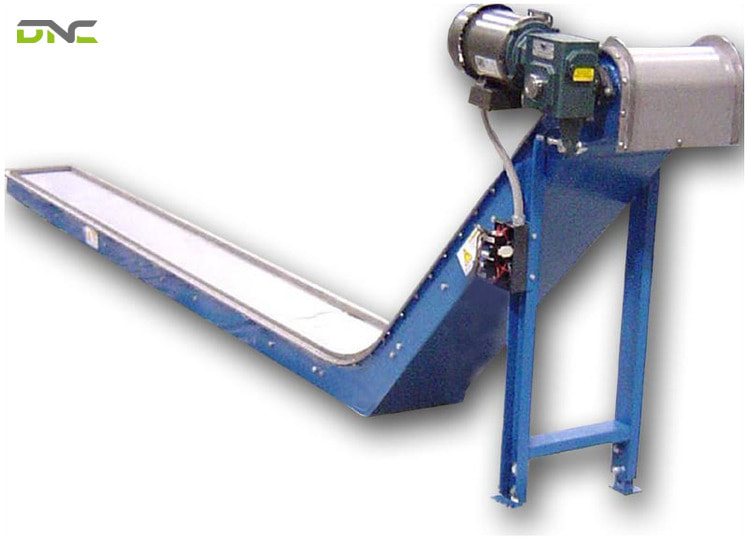
Magnetic conveyors consist of four main parts.
How many types of Magnetic Conveyor are there?
Magnetic conveyors are designed in a variety of ways to meet different transportation needs in the factory. Below are the 4 most common types:
- Horizontal Magnetic Conveyor: This is the most common type of conveyor, specialized in transporting materials on horizontal surfaces.
- Inclined Magnetic Conveyor: Designed with a certain inclination, helping to transport materials from low to high or vice versa. Strong magnets hold the material fixed, avoiding slipping during movement on inclined surfaces.
- Vertical Elevator Magnetic Conveyor: This type of conveyor transports materials vertically or almost vertically. Thanks to the extremely strong magnetic attraction, the material is pulled up without falling.
- Overhead Magnetic Conveyor: Hanging conveyors have a magnet system mounted above the conveyor belt, used to attract and move products from above.
The diverse designs of magnetic conveyors help to flexibly meet all transportation requirements in the factory, from horizontal, inclined to vertical movement. Choosing the right type of magnetic conveyor not only ensures operational efficiency but also contributes to optimizing the entire production process.
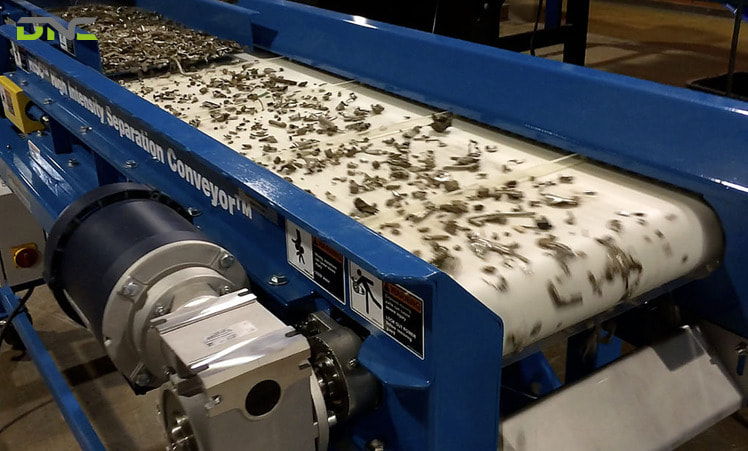
Magnetic conveyors are divided into 4 common types
Why should businesses use magnetic conveyors?
In addition to its diverse design and flexible transport capabilities, magnetic conveyors also possess many outstanding advantages, helping to optimize operational efficiency in manufacturing plants. Below are the main benefits when businesses choose to apply magnetic conveyors to their automation lines.
- Increase production speed: Magnetic conveyors help maintain a continuous and stable flow of materials, thereby increasing the operating speed of the entire production line.
- Durable, saving maintenance costs: With a closed design and few mechanical moving parts, magnetic conveyors are durable, operate stably and require low maintenance, helping businesses save long-term operating costs.
- Optimize production space: Inclined or vertical magnetic conveyor designs allow for maximum utilization of factory height, freeing up floor space to accommodate additional equipment or optimize production flow.
- Holds materials firmly, ensuring safe transportation: With strong magnetic attraction, the magnetic conveyor helps to fix materials firmly during movement, even on inclined or vertical sections.
- Increased Accuracy: With the ability to keep materials stable, magnetic conveyors help minimize the risk of errors during material handling, thereby improving the accuracy of final products, ensuring consistent quality in each order.
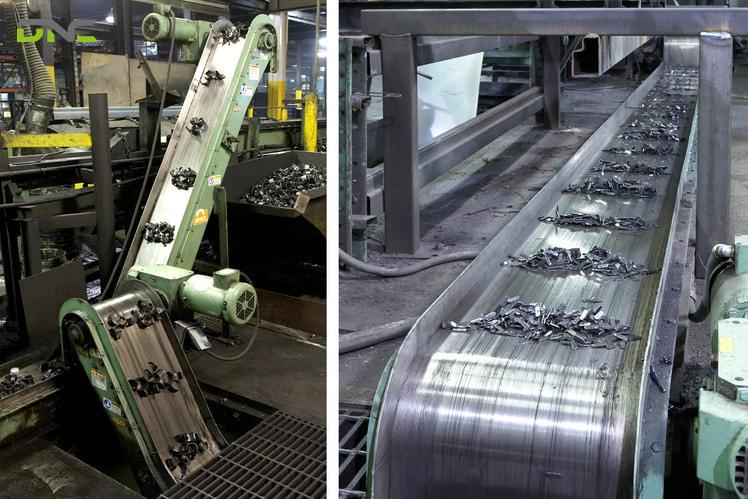
Advantages of magnetic conveyors
What are the practical applications of Magnetic Conveyor in factories?
Magnetic conveyors can be widely used in many types of manufacturing plants, from food processing, mechanical processing, to electronics and recycling industries.
- Metal and scrap processing: Conveyors are often used to transport metal scraps such as steel, aluminum, copper and small machine parts, making it easy to collect and transport without worrying about dropping.
- Electronic component manufacturing: Magnetic conveyors are used in electronic component production lines to transport small and precise parts.
- Food industry: In the food processing industry, magnetic conveyors help transport magnetic materials such as processing machinery or stainless steel tools. Magnetic conveyors can be easily cleaned and are antibacterial, meeting the strict hygiene requirements of the food industry.
- Automotive production line: Magnetic conveyor can transport metal parts of vehicles such as frames, shells, or small parts in the assembly line.
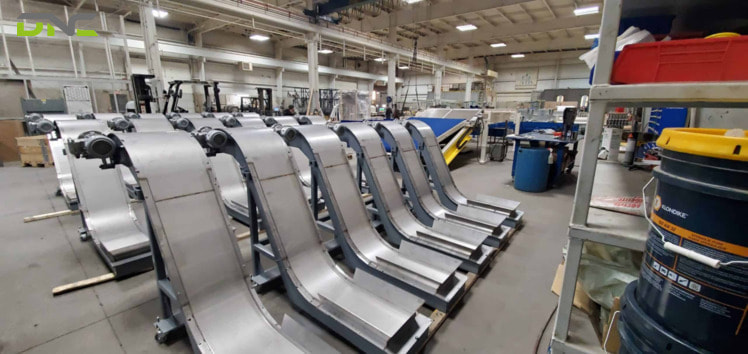
Magnetic conveyors can be widely used in many types of manufacturing plants, from food processing, mechanical processing
Where to buy reputable automatic magnetic conveyor lines?
If you are uncertain about where to purchase a magnetic conveyor, DNC Automation is an excellent option for you. Many customers have trusted DNC to provide automation solutions in the production process and have had positive experiences because:
- DNC is a leading technology, automation, and engineering company in Malaysia with over 15 years of experience in the field of automation
- System integration machinery, Internet of Things (IoT), Industry 4.0, and WinCC Scada System
- Diverse designs and sizes are suitable for many domestic and foreign houses. The equipment is 100% genuine and imported from Malaysia.
Please contact us via the hotline below if you have any questions about the product, we are happy to answer you!
- 13 views
- 0 Comment



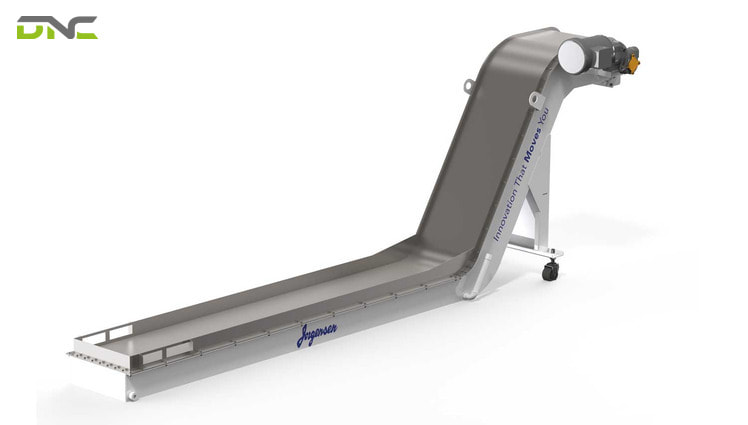
Recent Comments